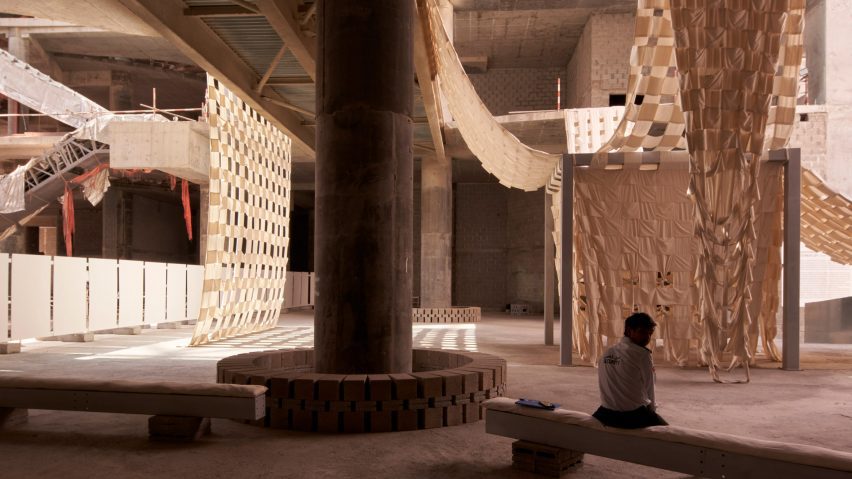
Limbo Accra turns half-built Sharjah Mall into a "symbol of potential"
Ghanaian studio Limbo Accra has installed a series of textile forms within an unfinished shopping centre, which is one of the largest incomplete buildings in the UAE, as part of the Sharjah Architecture Triennial.
Named Super Limbo, the project is the latest in a series of installations created by Limbo Accra that aims to draw attention to the potential of unfinished buildings.
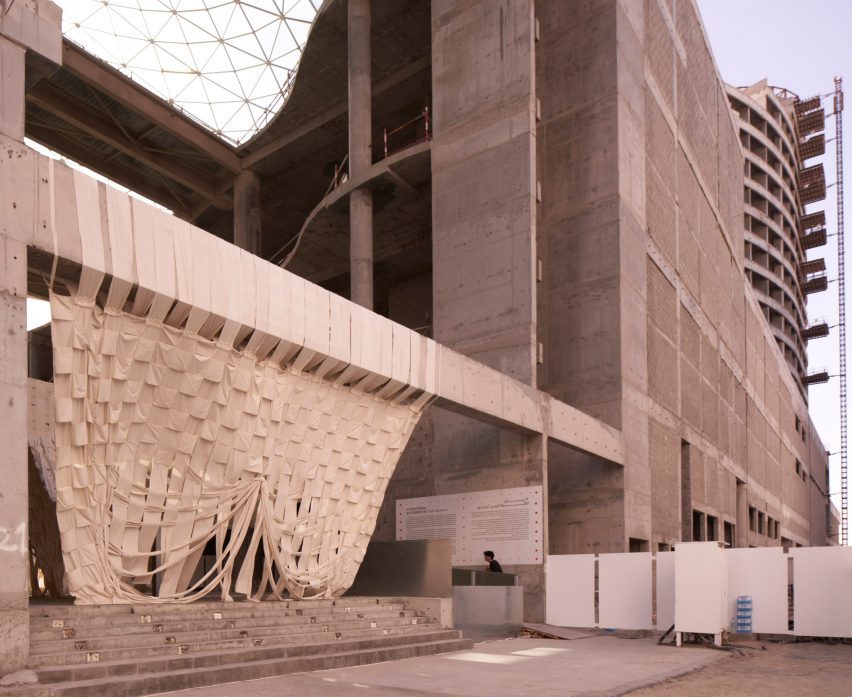
"Our goal was to transform and highlight this building as a symbol of potential, shifting the narrative of unfinished buildings from symbols of stagnation, into spaces with untapped opportunity," said Limbo Accra co-founder Dominique Petit‑Frère.
"We were also inspired by the architectural typology of these retail complexes," she told Dezeen. "Reflecting on the Gulf region's affluent modernisation, our work somehow contemplates how the mall, traditionally a space of consumerism, can be redefined into a canvas for innovative and alternative experimentation, especially in this current state."
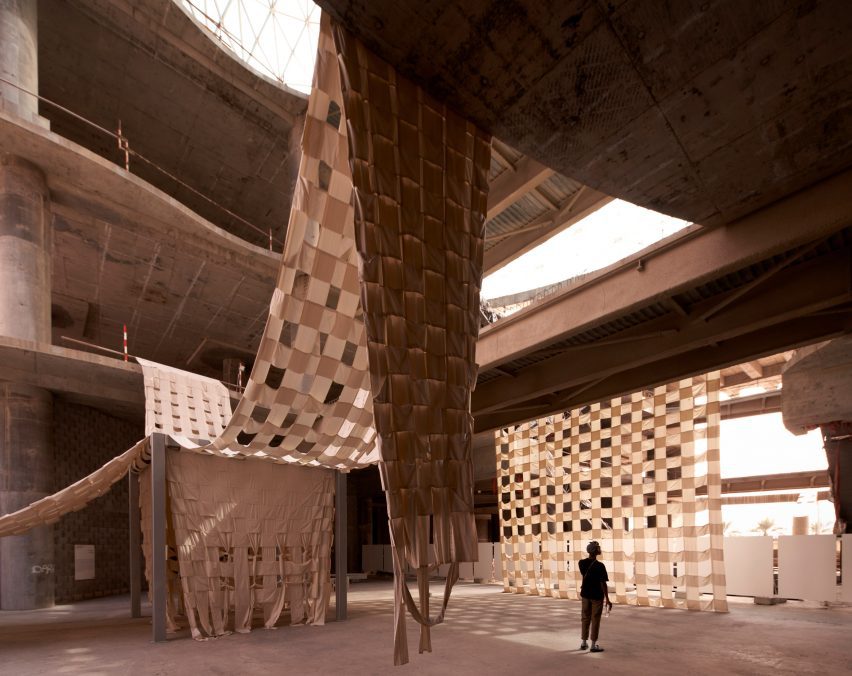
Created in collaboration with architect Anne-Lise Agossa, Super Limbo occupies part of the Sharjah Mall – a huge 64,753-square-metre shopping centre topped with a distinct dome and 30-storey residential tower.
The building began construction on a prominent location on the coast in Sharjah in 2008 but was abandoned before completion. It is one of the largest of the numerous incomplete construction projects within the UAE.
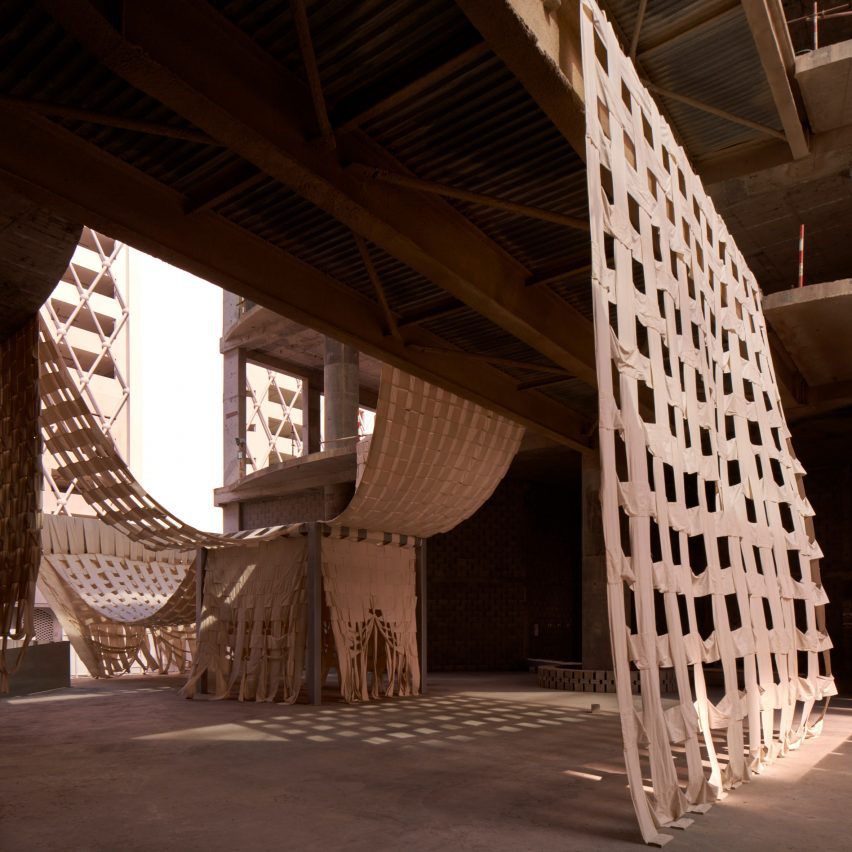
"The concept behind Super Limbo was to connect our research and practical experience of activating incomplete building projects in West Africa to a similar context in the Middle East," said Petit‑Frère.
"From the onset of our very first visit to Sharjah, we wanted to explore how liminal spaces in the form of deserts and unfinished buildings could guide us in approaching the curatorial theme that revolves around ideas of circularity and adaptability."
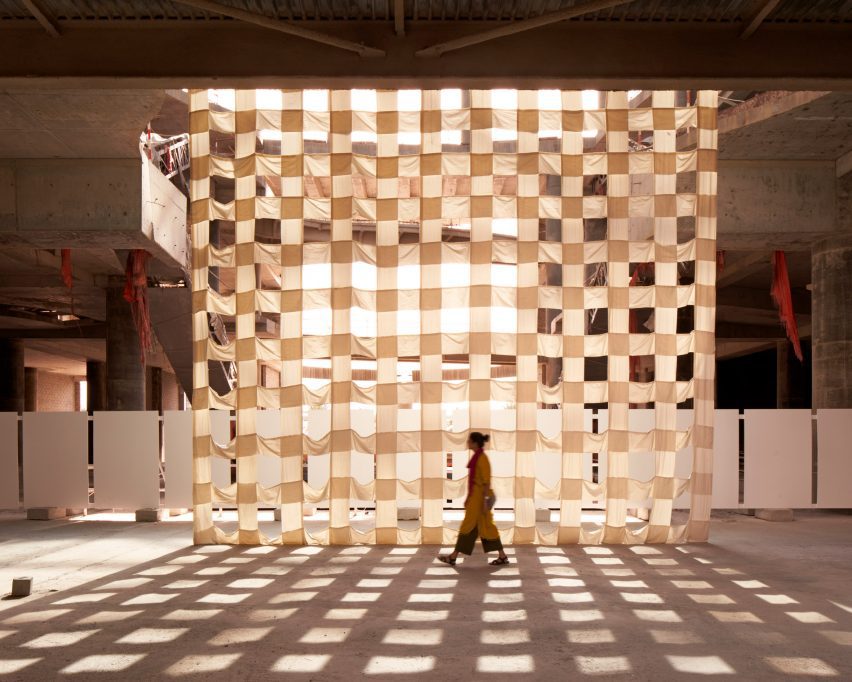
Within the building, Limbo Accra erected numerous fabric forms that were created in collaboration with Rym Beydoun, founder of the textile brand Super Yaya.
Fabricated by a team of 20 women, the textiles are informed by the fabric that often drapes around construction sites.
"Drawing on our environment in West Africa and our research in Sharjah, we were inspired by how unfinished buildings in both spaces were often elegantly and poetically draped with fabric," explained Petit‑Frère.
"We were also inspired by connecting the significance of storytelling in desert cultures spanning West Africa to the Middle East, and its ability to invoke imagery," she continued. "We wanted to create a pavilion that symbolises the scale and capacity of oral tradition to design spatial imagination, which was manifested through the creation of a spatial software created in partnership with architect Annelise-Agossa and Rym Beydoun of Super Yaya."
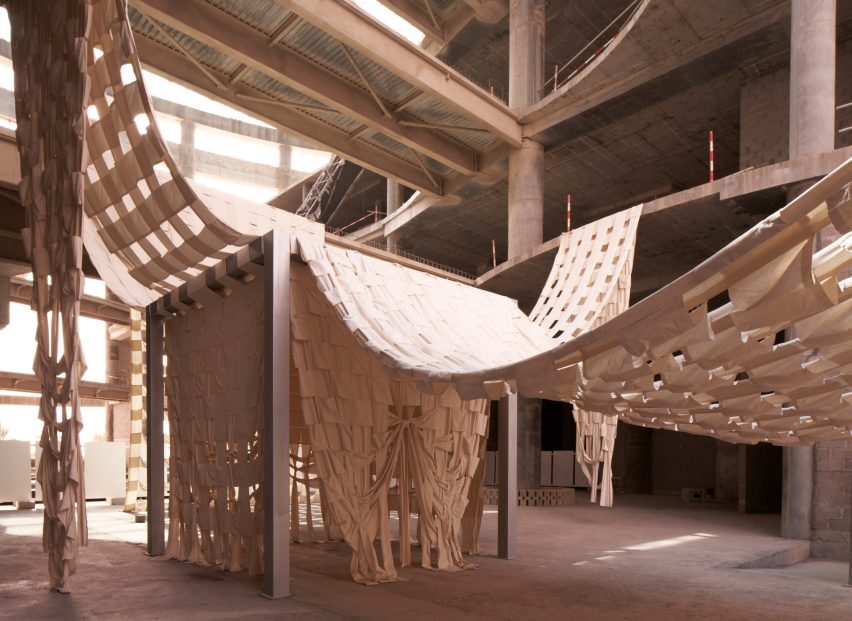
Limbo Accra hopes that the installation and the delicate fabrics that contrast with the raw concrete of the half-built building will encourage a wider discussion about reuse.
"Our approach unfolds across multiple acts," said Petit‑Frère. "In the first act, we grant public access to the unfinished buildings, aiming to raise awareness of their existence and the potential for their integration into our urban fabric."
"Following this, the second act involves activating the sites, manifesting their transformation into temporary public space. The third act focuses on positioning the site in a global context of incomplete architecture, facilitating a broader global conversation and engagement on their potential for reuse," she continued.
"The final act constitutes a collective re-imagination of the site, allowing everyone to perceive the site as a space of potential for an alternative future. This is what we hope to demonstrate with the Super Limbo activation and any of our previous projects."
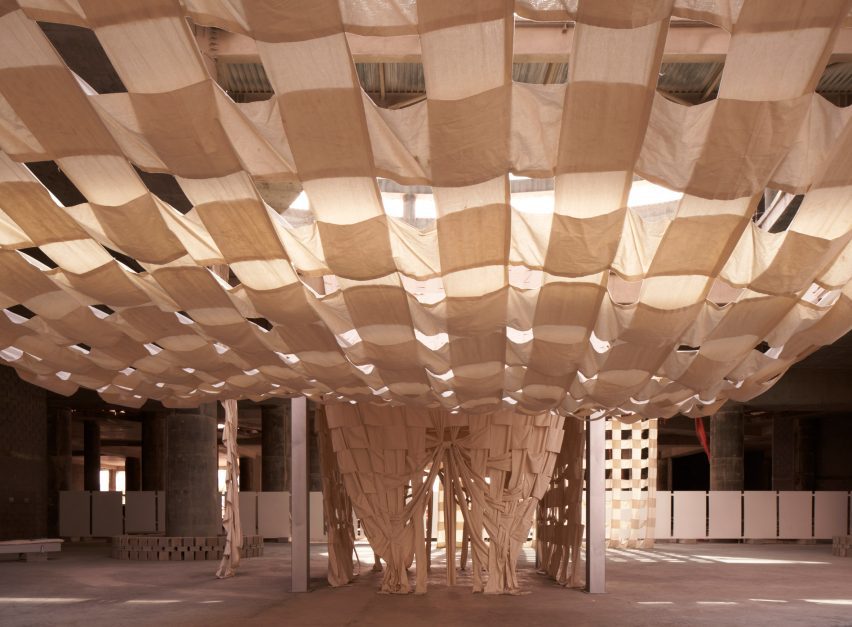
The second Sharjah Architecture Triennial focused on architecture created from scarcity, which was explained by the event's curator Nigerian architect Tosin Oshinowo in a recent interview with Dezeen. We rounded up 12 intriguing pavilions and installations from the event.
The photography is by Edmund Sumner.
Sharjah Architecture Triennial 2023 takes place from 11 November 2023 to 10 March 2024 at various locations across Sharjah. See Dezeen Events Guide for an up-to-date list of architecture and design events taking place around the world.